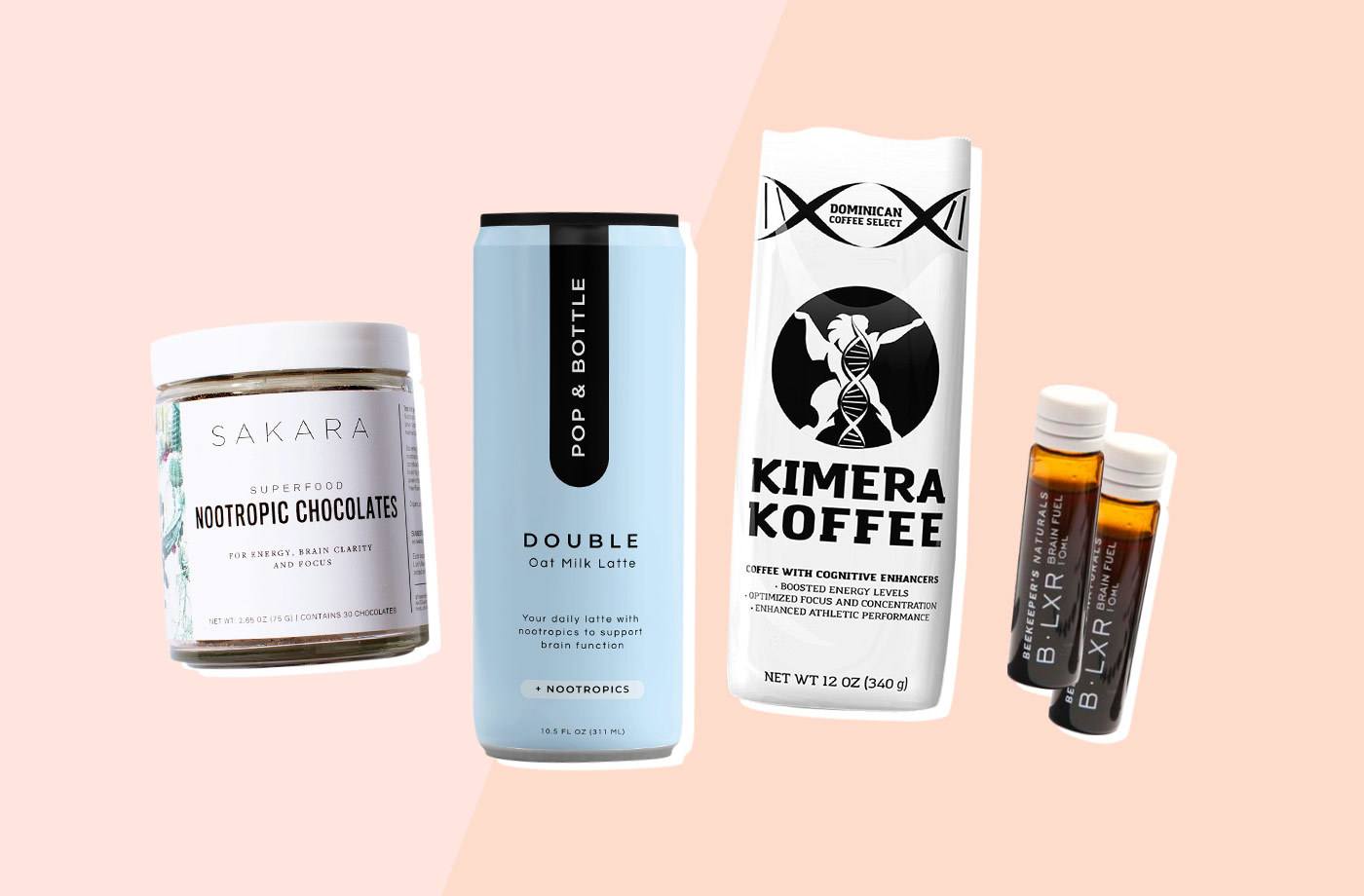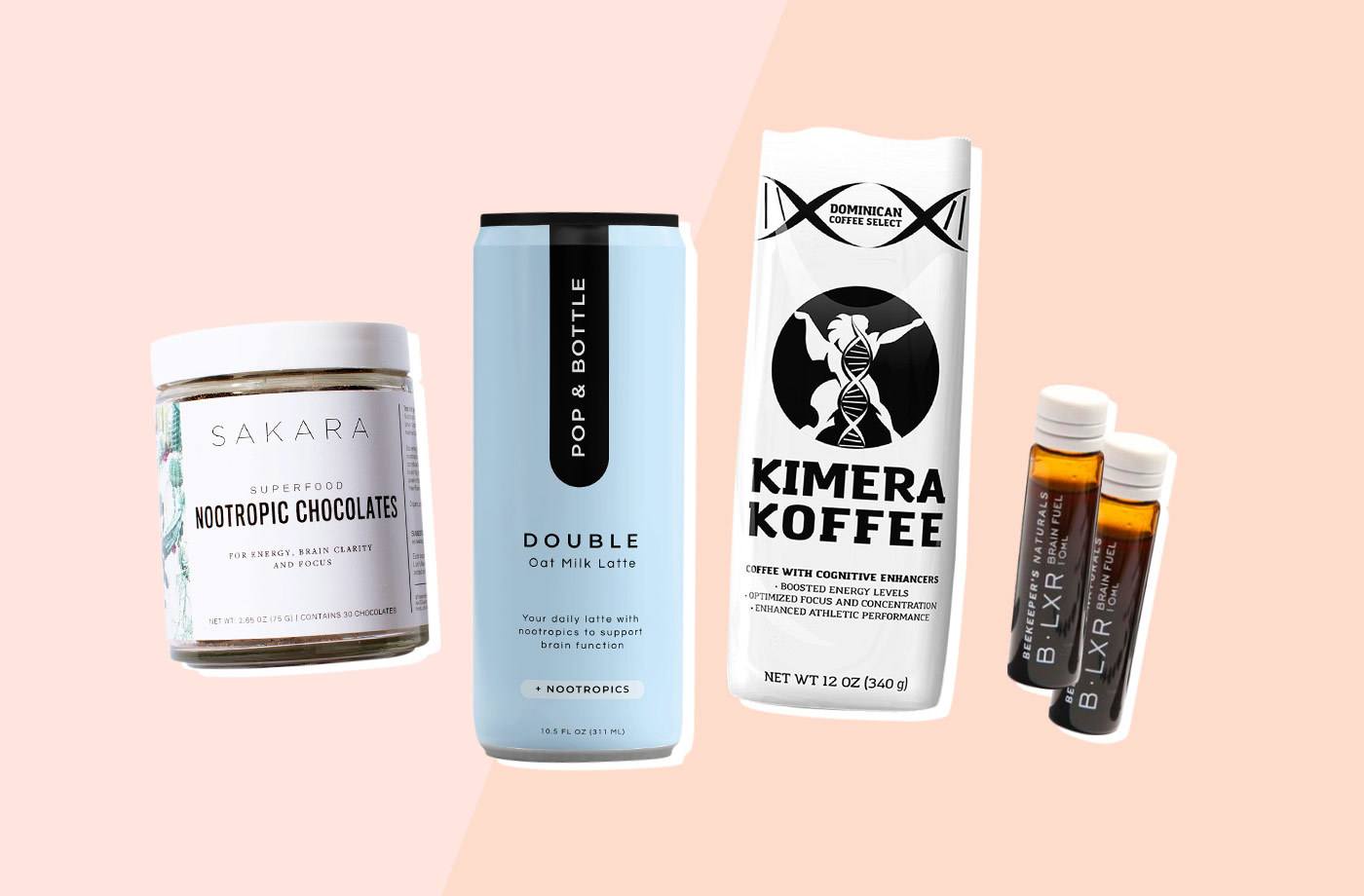Learn about brain health and nootropics to boost brain function
Brain-boosting nootropics: They’re not just a Silicon Valley thing anymore


 Pin It
Pin It Even working at a wellness company, I’m not immune to the stresses of everyday work life: looming deadlines, overflowing inboxes, back-to-back meetings… There is always so much to do, and the inability to concentrate long enough to get everything done sure doesn’t help. So when I started hearing about a way the 24/7 worker bees of Silicon Valley were “biohacking” their brain to stay focused using something called nootropics, I worked my health writer magic and had a few brands send me some to try.
For the uninitiated, nootropic supplements are cognitive performance-enhancing products made with a blend of herbs and natural brain enhancers such as bacopa, l-theanine, and ginkgo biloba—all of which have been linked to boosting focus in the present as well as supporting long-term brain health. It took a little trial and error, but once I figured out out the best way to take them, my ability to focus sky-rocketed. It was noticeable enough that colleagues started asking me to share my secrets.
When we named nootropics as a 2018 Wellness Trend, the supplements were just starting to take off. A year and a half later, the brain-boosting trend has exploded beyond Silicon Valley entrepreneurs—with their benefits are now available outside of capsule form.
“Seeing this surge in the popularity of nootropics isn’t surprising to me,” says Beekeeper’s Naturals co-founder Carly Stein, who created honey-tasting nootropic elixirs long before other brands jumped on board. “Modern life is hard on the brain—we could all use the extra support.” Studies and surveys say she’s right: when Well+Good asked 2,700 readers about stress and anxiety, 95 percent of people said they were stressed. What’s more, multitasking reduces productivity as much as 40 percent. “True sustained concentration has become the unicorn of modern living,” Stein says.
But if you’re not in the habit of taking a supplement, you’re in luck: Wellness brands are now incorporating nootropics into foods and drinks you’re already consuming. Case in point: Sakara Life’s new nootropic chocolates. “I am no stranger to long days at the office—and long nights up with my 9-month-old baby,” says Sakara Life co-founder Danielle Duboise. “These chocolates are the perfect healthy substitute for that 3 p.m. cup of coffee many of us crave, myself included.” She says she gets a boost in energy, focus, and productivity, sans caffeine-related jitters.
“Each nootropic ingredient has been studied in clinical studies and is revered for its brain-boosting qualities,” adds co-founder Whitney Tingle. “One 2014 study suggests a 50 mg dose of l-theanine—a key nootropic ingredient in these chocolates—increases the activity of alpha brain waves, which are linked to creativity. Bacopa has been shown to enhance memory in learning and retaining information. We also used the adaptogens gotu kola and lion’s mane to help reduce fatigue while simultaneously regulating the stress response.” The result: a treat that Tingle says helps you be “fully present, almost instantly.”
“True sustained concentration has become the unicorn of modern living.” —Carly Stein, co-founder of Beekeeper’s Naturals
They’re not the only food brand to jump on the nootropics train: Kimera Coffee has a nootropics blend (packed with alpha GPC, taurine, DMAE, and l-theanine) and later this year you’ll be able to order grab-and-go nootropic oat lattes from Pop & Bottle.
And nootropics are now being marketed for more than temporary concentration boosts. The long-term benefits of certain nootropic ingredients actually inspired Gaia Herbs’ new brain health line, which includes a nootropic supplement as well as a blend called Agile Mind (made with bacopa, turmeric, and ginkgo) and a bacopa supplement. “One in 10 people age 65 and older has Alzheimer’s dementia,” says Stacey Gillespie, Gaia Herbs’ director of product strategy, and the number of people living with Alzheimer’s in the U.S. is expected to rise from 5.8 million to 14 million by 2050. “With these factors in mind, Gaia Herbs decided to develop a new line of plant-based nootropic products that help maintain cognitive health without the use of addictive ingredients.” Of course, a supplement can’t treat Alzheimer’s, but Gillepsie hopes that the products will help people better prioritize their brain health beyond just getting through another long workday.
While easier access to nootropics is certainly beneficial for brain health, it shouldn’t be considered a magic bullet. Better stress management and healthier sleep habits also have to be part of the equation. “There is no supplement that will do a better job for you in terms of cognition than getting enough sleep,” Rachel Carlton Abrams, MD, previously told Well+Good. Experts say they should be considered an addition to a healthy routine rather than a replacement for one. As Stein says, “learning to be more efficient with our time and understanding the role mindfulness plays in our daily flow are sustainable solutions that should be used in tandem with nootropics. It’s the ultimate stack.”
Here’s how to boost your brain health through your diet, plus three other cutting-edge ways.
Click here to view full article